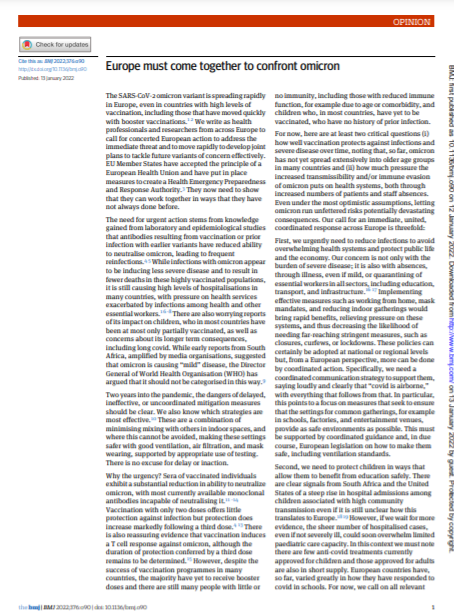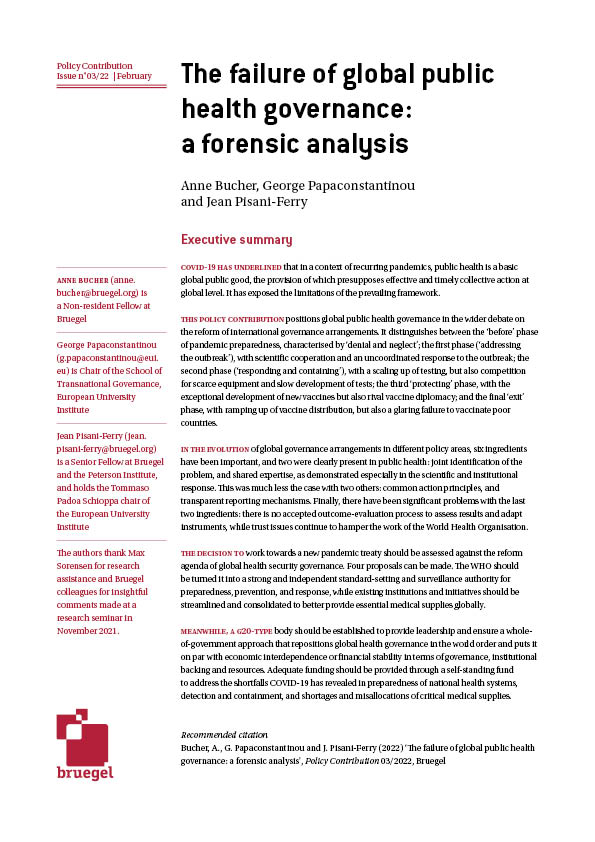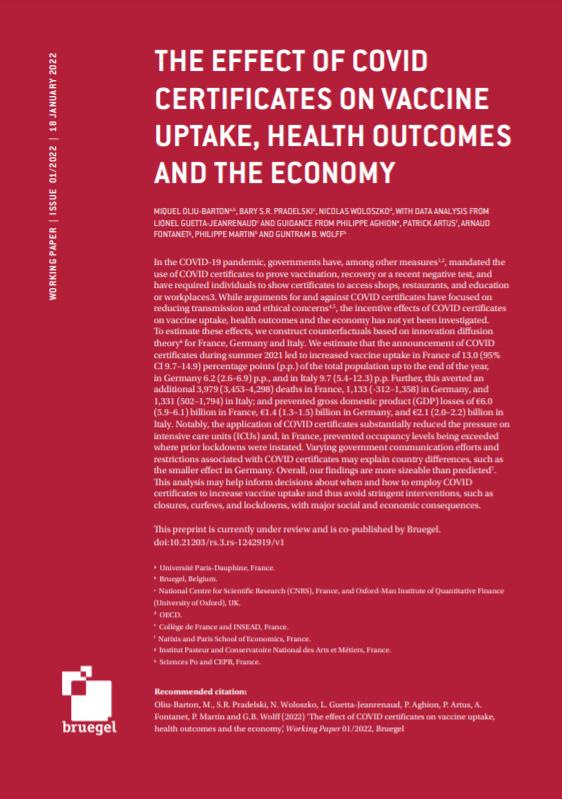External Publication
Europe must come together to confront Omicron
Statement published in the renowned British Medical Journal (BMJ) to address the wave of the Omicron variant of SARS-CoV-2.
A multi-disciplinary team of over 30 scientists from all across Europe have joined forces to issue a statement to address the wave of the Omicron variant of SARS-CoV-2. The statement was published in the renowned British Medical Journal (BMJ) on January 11, 2022.
In their call to coordinated action, they warn that Omicron remains concerning even when headlines are suggesting that Omicron causes a milder form of COVID-19. Hence the experts call for immediate action, namely taking measures to reduce the number of infections, while protecting children and proceeding the vaccination efforts.
Authors
André Calero Valdez, RWTH Aachen University, Aachen, Germany
Emil N. Iftekhar, Max Planck Institute for Dynamics and Self-Organisation, Göttingen, Germany
Miquel Oliu-Barton, Paris-Dauphine University, Paris, France, and Bruegel, Brussels, Belgium
Robert Böhm, University of Vienna, Vienna, Austria, and University of Copenhagen, Copenhagen, Denmark
Sarah Cuschieri, Faculty of Medicine and Surgery, University of Malta, Msida, Malta
Thomas Czypionka, Institute for Advanced Studies Vienna, Vienna, Austria, and London School of Economics and Political Science, London, UK
Uga Dumpis, Pauls Stradins University Hospital, University of Latvia, Riga, Latvia
Giulia Giordano, University of Trento, Trento, Italy
Claudia Hanson, Karolinska Institute, Solna, Sweden
Zdenek Hel, University of Alabama at Birmingham, Birmingham, USA
Anna Helova, Sparkman Center for Global Health and Department of Health Policy and Organisation, School of Public Health, University of Alabama at Birmingham, Birmingham, USA
Ilona Kickbusch, Global Health Centre, Graduate Institute of International and Development Studies, Geneva, Switzerland
Peter Klimek, Medical University of Vienna, Vienna, Austria, and Complexity Science Hub Vienna, Vienna, Austria
Lilian Kojan, RWTH Aachen University, Aachen, Germany
Mirjam Kretzschmar, University Medical Center Utrecht, Utrecht, The Netherlands
Tyll Krueger, Wroclaw University of Science and Technology, Wroclaw, Poland
Jenny Krutzinna, University of Bergen, Bergen, Norway; Berit Lange, Helmholtz Center for Infection Research, Braunschweig, Germany
Jeffrey V Lazarus, Barcelona Institute for Global Health (ISGlobal), Hospital Clínic, University of Barcelona, Barcelona, Spain
Helena Machado, Institute for Social Sciences, University of Minho, Braga, Portugal
Martin McKee, London School of Hygiene and Tropical Medicine, London, UK
Kai Nagel, TU Berlin, Berlin, Germany
Matjaž Perc, University of Maribor, Maribor, Slovenia, Department of Medical Research, China Medical University Hospital, China Medical University, Taichung, Taiwan
Elena Petelos, University of Crete, Heraklion, Greece, Maastricht University, Maastricht, The Netherlands
Nedyu Popivanov, Bulgarian Academy of Sciences and Sofia University, Sofia, Bulgaria
Bary Pradelski, CNRS, Grenoble, France, and Oxford-Man Institute, Oxford, UK
Barbara Prainsack, Paris-Dauphine University, Paris, France
Kay Schroeder, Zuyd University of Applied Sciences, Heerlen, The Netherlands
Sotirios Tsiodras, National and Kapodistrian University of Athens Medical School, Athens, Greece
Paul Wilmes, University of Luxembourg, Esch-sur-Alzette, Luxembourg
Guntram Wolff, Bruegel, Brussels, Belgium, and Université libre de Bruxelles, Brussels, Belgium
Citation
Europe must come together to confront omicron doi:10.1136/bmj.o90











